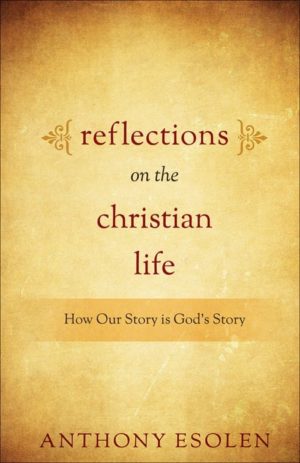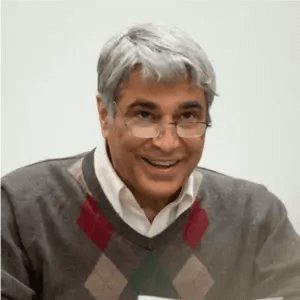The purpose of schooling—which is not the same as education—is to encourage people to express confident platitudes, which they are pleased to call their opinions, about things they know nothing of. - Anthony Esolen
The purpose of schooling—which is not the same as education—is to encourage people to express confident platitudes, which they are pleased to call their opinions, about things they know nothing of. This is far worse than ignorance. I am trying to imagine my grandfather expressing an opinion about the Middle Ages. It is impossible. I cannot do it. He would have been as likely to put forth dogma regarding green men from Mars.
Now, Nonno was no timid man. If he had an opinion, he’d set it down as solid truth. That got him into some nice discussions with my father, whom he loved as if he were his own son. He and my father, for example, had exactly the reverse opinions about Presidents Roosevelt and Truman. My father liked Truman but thought that Roosevelt was a snob and a fraud. Nonno admired Roosevelt but had no use for Truman. As for me, I don’t care much for either one, though I think that Catholic conservatives have somewhat underrated the former and overrated the latter.
I have reasons for that evaluation, but they are not to the point here. I express no opinion about, for example, meteorology, because I am not a meteorologist. I do know a little about history. I know that it was once warm enough in Europe for the Vikings to grow grain on the coasts of Greenland. We have physical evidence and written reports. I know that there are many millions of acres of rich soil in the north temperate zones, particularly in Canada, that are now not arable because the growing season is too short. What the rest of the world would be like if it did grow warm enough there, as obviously it once was a very long time ago, I do not know, and I express no opinion about it.
Orthodox. Faithful. Free.
Sign up to get Crisis articles delivered to your inbox daily
I am, however, taken aback by people who know no more about meteorology than I do, and less about the mathematics of functions with more than two or three variables, and a lot less about history and geography, but who are so certain of some meteorological prediction, they are ready to call you a knave, an idiot, or a perfect madman if you decline to agree.
There are, likewise, Things that Everybody Knows about the Church, things that people know not because they have read a lot and thought deeply about what they have read but, rather, because they are the platitudes of the schools—legal tender in discussion, like grimy quarters and dog-eared ten-dollar bills.
Someone recently informed me that serfs built the great cathedrals in Europe, having been lied to or threatened by the priests. Ten seconds of rational thought, or one brief encounter with physical reality, might have informed him that a plowman does not hew granite, choose trees and hew their trunks to span broad interior spaces, build and operate winches, or erect scaffolding, let alone perform many of the tasks that require expert craftsmanship: stone-dressing, glazing, sculpting, painting, carpentry, metalwork in iron or lead or bronze, the designing of arches, and so forth. That it was also psychologically incoherent that these otherwise ordinary people should build churches of consummate beauty and intricacy from sheer compulsion rather than as an expression of faith—that also never occurred to the fellow.
Someone else told me that, except for the works of Goethe, there was nothing worthwhile to be read in the days before literature was “set free from the shackles of religious dogma.” Now, there would have been as much chance of Nonno delivering himself of an opinion about Confucius and the Ch’in dynasty as to have written that sentence. With one grand sweep of a heavily schooled but very lightly educated hand, my interlocutor sentenced to irrelevance and incompetence Ariosto, Boccaccio, Calderon, Camoens, Cervantes, Chaucer, Corneille, Dante, Donne, Dryden, Herbert, Lope de Vega, Milton, Pascal, Petrarch, Racine, Spenser, Shakespeare, Swift, Tasso, and the great medieval romancers in his own native German tongue.
I am not complaining here about indoctrination. I am complaining about a kind of stolid blockheadedness that is the predictable result of schooling: of a trade in platitudes, cheap and easy to pick up, encouraged by the strange notion that human affairs are reducible to little truisms, as cookie dough may be pressed into aluminum forms. “They really were the Dark Ages,” said a third man to me, “because of the systematic repression of pagan customs and beliefs.” Which ages, and where? Repression of exactly what, and how, and by whom?
Sigrid Undset, the Norwegian novelist who actually did know a lot about the Middle Ages, especially as regards the history of the Scandinavian peoples, features, at the end of Kristin Lavransdatter, the attempted sacrifice of a small child, to ward off the evil spirits supposedly responsible for an outbreak of plague. Kristin herself, by now an aging woman living in a convent, faces the men down and prevents it. Is that the kind of repression we are talking about?
Or the discouragement of blood feuds, a staple of life in pagan Iceland, as witness Njal’s Saga, itself but glancingly a Christian work? Or a redefinition of what it means to be a good king, moving from being good at killing people and taking their things (Scyld Scefing) to mildness in rule and sternness in keeping enemies away (Beowulf)?
Of course, nobody wants to enter such discussions. The challenge to enter them, to be specific, to subject the platitude to the test of evidence and human plausibility, is like a social faux pas of the worst sort, bad enough to tag you as unfit for polite society. Schooling, you see, is really about picking up the right things to say at parties, getting into the right crowd, oiling the gears of ambition and social advancement.
Someone says that the Church has always been devoted to the oppression of women. You mention that St. Augustine and St. Gregory of Nyssa wrote the first substantial tributes to women who were neither love interest nor queen nor imaginary goddess. You mention that nowhere else in the world were women revered as Christians revered the women saints. You mention that one of the most powerful human beings in the Europe of her time was the devout Matilda of Tuscany, friend and correspondent of St. Anselm.
You mention that before the Industrial Revolution, most human beings of both sexes had to be devoted to their families and getting through from one winter to the next; but if you did want to find great numbers of highly literate women, you had best look to where the Christians were. It won’t matter. You won’t change anybody’s mind, because there isn’t a mind in play to change. You have been assuming that you are engaged in a search for truth, when it has always been a matter of what the right people are supposed to say.
By this author:
- Reflections on the Christian Life$9.95 – $14.95
I understand that I’m painting with a broad brush. Not everybody is so. But most people are—I mean, most people who know little about the Church. The first task, I’m afraid, is not to teach them about the Church but to show them that, in one area after another, they have no knowledge, that most of the coins and bills are worthless, and that if they do seek knowledge, they should expect to be lonesome at parties, and to be delayed or thwarted when they seek gainful employment.
Why, the mere belief that marriage is for a man and a woman, and for keeps, will, in most mad circles, make you unmarriageable. But a wise man once told us to expect such treatment, because He got plenty of it Himself. So let the social rejection come. It’s still only a little shadow of Calvary.

